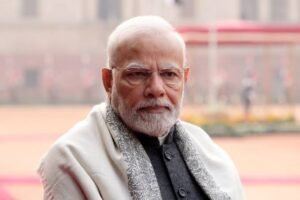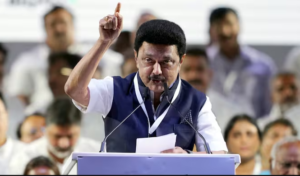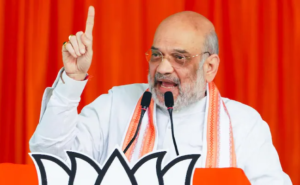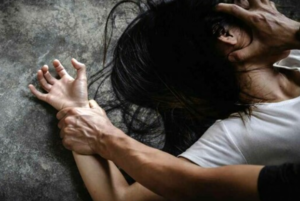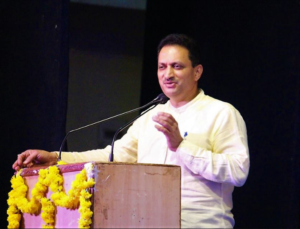OPINION | Return of Rajapaksas Cause for Caution, Concern Both for India and Tamils in Sri Lanka
Gotabaya Rajapaksa waves at his supporters.
Gotabaya’s victory in the presidential elections, where the minority communities in the north and the east of the island voted in unison against him, was a decisive verdict from the over 70 per cent Sinhala majority in the country.
India and the minorities in Sri Lanka – Tamils and Muslims – will have to see the election of Gotabaya Rajapaksa as the seventh president of the island nation with caution and concern.
Gotabaya’s victory in the presidential elections, where the minority communities in the north and the east of the island voted in unison against him, was a decisive verdict from the over 70 per cent Sinhala majority in the country.
It marks the return of the Rajapaksa brothers to power and threatens to take Sri Lanka back to the “authoritarian family rule” that it had witnessed under former president Mahinda Rajapaksa between 2005 and 2015.
Most constitutional institutions, including the office of the chief justice of the country, were under pressure during the previous Rajapaksa regime and key positions were occupied by family members.
Four brothers were in all but complete control of a country: Mahinda was the president, Gotabaya was defence secretary, Basil took most economic decisions and Chamal was the speaker of the parliament.
This family rule, which faced accusations of enormous corruption and murder of democratic values, was undone in the 2015 elections.
At that time it was a shock defeat for the Rajapaksas who had vanquished the militant separatist group Liberation Tigers of Tamil Eelam (LTTE) in 2009 and came to power with a decisive mandate in 2010. The loss was attributed to help from India and the role of the Research and Analysis Wing (R&AW), its external intelligence agency, was insinuated publicly.
Mahinda Rajapaksa had accused India of intervening in the elections, which ultimately led to the two principal parties in the island nation – the Sri Lanka Freedom Party (SLFP) and United National Party (UNP) – joining hands to oust Rajapaksa – and had forced India to recall the R&AW station chief even before the 2015 polls.
Many observers feel that New Delhi did not do enough to disown any covert operation – subtly allowing itself to be given the credit – and that caused concerns in the intelligence apparatus.
Since then, despite the defeat of the Rajapaksas, the union of the SLFP and UNP could not offer a cohesive government. Differences between President Maithripala Sirisena and Prime Minister Ranil Wickremesinghe were out in the open.
The tragic Easter Sunday bombings in April 2019 where 259 people died in an avertable terrorist attack was a major trigger to push public opinion against the ruling establishment and in favour of the authoritarian Rajapaksa family.
There was specific intelligence warning from India about the date and even place of the strikes and yet the Sri Lankan authorities did little to prevent it.
The impact of such a horrifying attack on an island that has seen decades of civil war created fear and insecurity and a sentiment in favour of the Rajapaksas who ran a strong, military action against the LTTE. The threat of a dictatorial family rule was overshadowed by a threat to national security and a weak government.
Corruption allegations in the central bank of the country earlier this year also seem to have dented the credibility of the ruling establishment further and paved the path for the return of the Rajapaksas.
Against this backdrop, Sri Lanka under Gotabaya Rajapaksa will have an uneasy relationship with New Delhi. In fact, when Mahinda Rajapaksa was made prime minister of Sri Lanka for 51 days in a parliamentary coup in 2018, Gotabaya was in charge of defence and is reported to have cast a massive surveillance net over Indian diplomats in the island. That may be an indication of things to come and it is not a good precedent for New Delhi.
The Rajapaksas have an affinity towards the Chinese and this will cause further worry to India. It will be important for New Delhi to slowly and carefully assess its position with the new dispensation in Colombo.
India is too powerful a force to be ignored or antagonised openly by Sri Lanka from a diplomatic, economic and security point of view, but then China too has a strong presence and there is bound to be a convoluted diplomatic script that will unfold between New Delhi, Colombo and Beijing with the Rajapaksas as the central figures.
India’s hold in Sri Lanka is also largely due to the affinity that the minorities, especially Tamils, have towards it. Given that the Rajapaksas have returned on a wave election from the majority Sinhalese, there are bound to be repercussions for the Tamils and Muslims.
The country has not moved forward with promised constitutional reforms and it seems unlikely that President-elect Gotabaya will attempt a soothing approach towards the minorities and that leaves them, especially the Tamils, in a precarious position.
A parliamentary election too is likely within a year and the position taken by the Tamil and Muslim parties in those polls would be important to watch out for. It is not clear if they have the strength to go on a path of democratic confrontation with the new president.
In the end, it will test the strength of the opposition and spirit of the island nation to withhold its constitutional, democratic values. The Tamils and India would only hope that Gotabaya Rajapaksa disappoints his detractors, as pointed out by a leading Indian daily.

